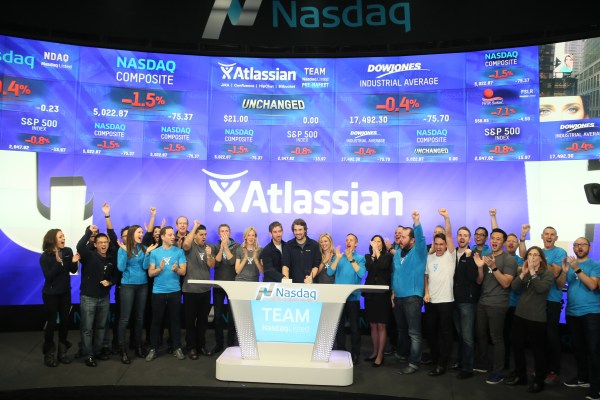Despite multiple overtures by the British government to woo tech companies and keep the largest ones from defecting to the US, the latest example of the failure of this policy comes with the news that Australian software giant Atlassian is to move its HQ to Delaware, USA, in its search for what it calls a “broader set of investors”.
The move has dealt a fresh blow to London’s ambitions as a global tech hub, following the IPO flops of Deliveroo (with its valuation down over 65% since floatation) and the 86% slump of ecommerce group THG.
While Atlassian moved its domicile from Sydney, Australia to London in 2014, the $54bn (£45bn) Nasdaq-listed firm said it now wants more options on investors, to attain support for its inclusion in “additional stock indices”, and to streamline its corporate structure, the Telegraph reports.
The UK government has tried to promote London as a tech center in recent years by sharpening up the UK’s listing regime.
The former Chancellor, and now contented for Prime Minister, Rishi Sunak, told London Tech Week only last month: “If you’re an entrepreneur looking for funding – I want you to look at the UK and say: that’s where I want to be.”
But these and similar overtures have fallen flat with floated companies. British chipmaker Arm is the latest to head for a primary listing in New York, although it may still end up as a dual listing between New York and London.
There has even been a lukewarm response from still-privately held, late-stage, British startups to a London listing. Nigel Toon, CEO of Bristol’s Graphcore, which has a £2bn+ valuation, has previously pointed out that New York has a “deeper bench of analyst knowledge” than London and more favorable listing rules.
Atlassian is declining to comment, instead referring media to an April statement by Martin Lam, its head of investor relations, in which he said: “We believe moving our parent entity to the United States will increase our access to a broader set of investors, support inclusion in additional stock indices, improve financial reporting comparability with our industry peers, streamline our corporate structure, and provide more flexibility in accessing capital.”
The London Stock Exchange currently requires companies to show three years of revenue growth, as well as audited financial statements, but it’s heads unveiled plans in May to potentially ease these rules.
The global dip towards recessionary economics may also be concentrating the minds of tech companies looking to find wider investors in larger markets, and the US is an obvious choice in this respect.
